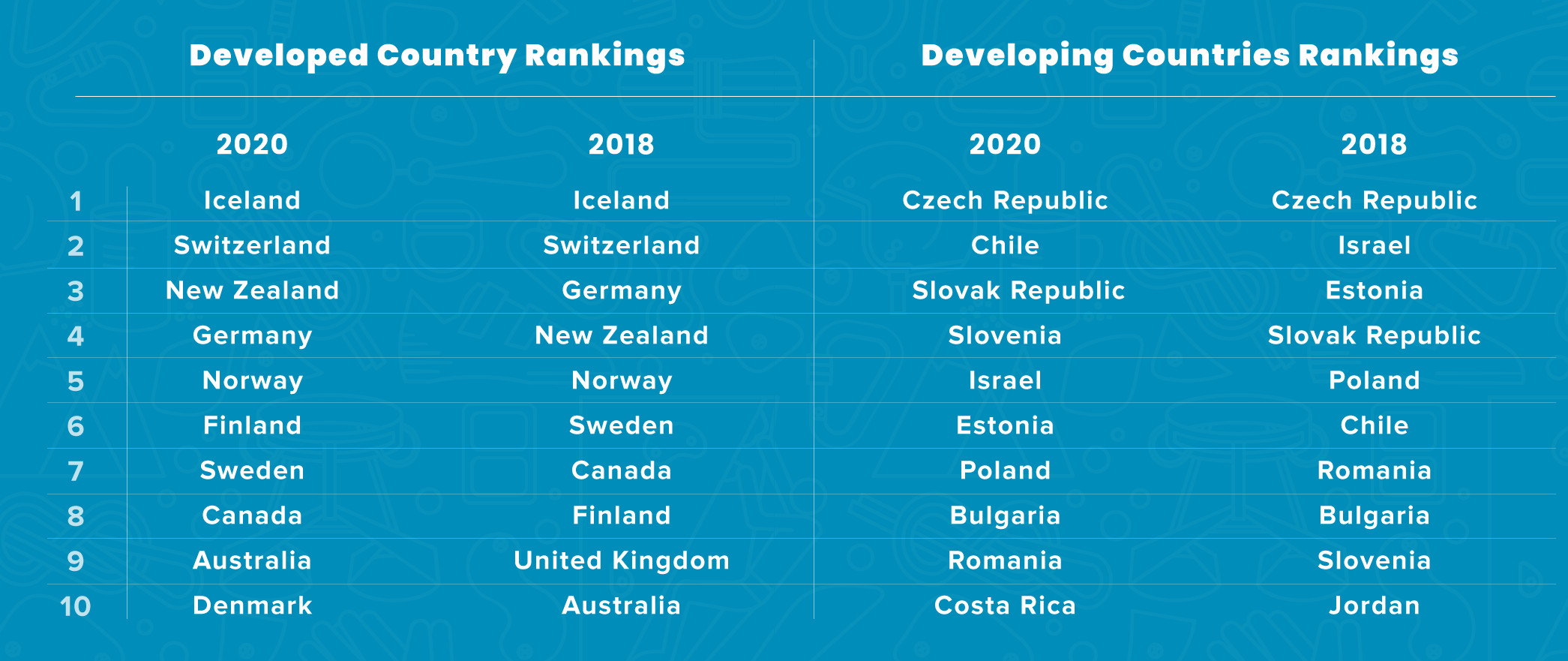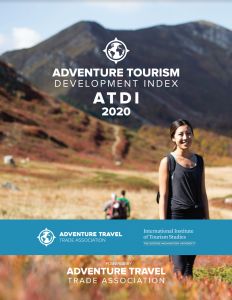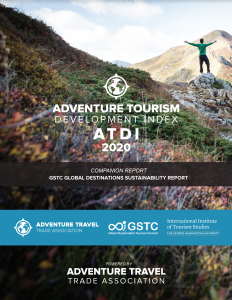The Adventure Travel Trade Association (ATTA) and George Washington University International Institute of Tourism Studies (GW) are pleased to release the 2020 Edition of the Adventure Tourism Competitiveness Index (the ATDI). Since 2008, the ATDI has ranked 191 countries across ten pillars. Countries are separated into two categories, developed and developing. This year Iceland and Czech Republic maintain their positions as the world's most competitive adventure tourism destinations.
Top 10 Developing and Developed Country Rankings - ATDI 2020
The 10 pillars of the ATDI are: Sustainable Development Policy, Safety and Security, Health, Natural Resources, Cultural Resources, Adventure Activity Resources, Humanitarian, Entrepreneurship, Tourism Infrastructure, and Image.
 The release of this year’s report occurs while the world is in the midst of a global pandemic caused by the rapid spread of COVID-19 (coronavirus). The virus has effectively caused a total shutdown of the global tourism industry and is currently forecast to cost the industry 100 million jobs worldwide. Yet, while this is undeniably a watershed moment for global tourism, the 2020 ATDI suggests there are many reasons to be optimistic about the future of adventure travel. This year’s report reveals countries expanding their share of protected areas, increasing their efforts to mitigate climate change, and extending support to entrepreneurs.
The release of this year’s report occurs while the world is in the midst of a global pandemic caused by the rapid spread of COVID-19 (coronavirus). The virus has effectively caused a total shutdown of the global tourism industry and is currently forecast to cost the industry 100 million jobs worldwide. Yet, while this is undeniably a watershed moment for global tourism, the 2020 ATDI suggests there are many reasons to be optimistic about the future of adventure travel. This year’s report reveals countries expanding their share of protected areas, increasing their efforts to mitigate climate change, and extending support to entrepreneurs.
When travel resumes, ATTA believes that the type of small group nature-based, experiences that dominate the adventure landscape will possibly be seen as potentially safer than crowded destinations and large group experiences. Destinations around the world will compete to capture the attention and the dollars of adventure tourists.
“As our world faces increasingly severe crises—due to climate change, health pandemics, terrorism, and other mega-threats—only destinations that are healthy and have a solid sustainable management plan in place are likely to remain competitive in the long-term.”
“In this context the factors of competitiveness considered in the ATDI and the companion report developed in partnership with the GSTC are especially useful,” said Christina Beckmann, ATTA Vice President for Global Strategy and one of the founding ATDI team members.
For example, the ATDI can be used as a lens into destination resiliency. In particular, Pillar 3, Health; Pillar 7, Entrepreneurship and Pillar 8, Humanitarian, provide important insight into a destination's readiness to weather a public health crisis. It is likely that elements measured within these pillars, such as the number of hospital beds per resident, will become real concerns of future travelers when they select destinations.
“As our world faces increasingly severe crises—due to climate change, health pandemics, terrorism, and other mega-threats—only destinations that are healthy and have a solid sustainable management plan in place are likely to remain competitive in the long-term,” says Seleni Matus, Executive Director, International Institute of Tourism Studies at George Washington University.
 This year’s ATDI report is published with a companion report ‘GSTC Global Destination Sustainability Report,’ which is designed to more deeply explore the sustainability dimension of adventure tourism competitiveness worldwide. This report is a product of a partnership with the Global Sustainable Tourism Council (GSTC). The companion report analyzes 24 destinations that have applied the GSTC Destination Criteria and Indicators. These geographically diverse destinations vary in their level of tourism development. When used as a companion piece to the ATDI, the GSTC analysis provides additional insights into destination sustainability challenges and opportunities. While the ATDI is focused on country-level competitiveness insights, the GSTC-D report is regional and local in scope. An in-depth side-by-side analysis of the ATDI and the GSTC-D is featured throughout the document.
This year’s ATDI report is published with a companion report ‘GSTC Global Destination Sustainability Report,’ which is designed to more deeply explore the sustainability dimension of adventure tourism competitiveness worldwide. This report is a product of a partnership with the Global Sustainable Tourism Council (GSTC). The companion report analyzes 24 destinations that have applied the GSTC Destination Criteria and Indicators. These geographically diverse destinations vary in their level of tourism development. When used as a companion piece to the ATDI, the GSTC analysis provides additional insights into destination sustainability challenges and opportunities. While the ATDI is focused on country-level competitiveness insights, the GSTC-D report is regional and local in scope. An in-depth side-by-side analysis of the ATDI and the GSTC-D is featured throughout the document.
The ATTA and GW along with the GSTC hope this pair of reports allow destination planners and marketers to gain fresh insights and consider a holistic approach to destination management, one that honors competitiveness in the marketplace and long-term sustainability, so that destinations can thrive economically, socially, and environmentally, benefitting all stakeholders in the ecosystem.
The 2020 Edition of the Adventure Tourism Competitiveness Index is available for a free download here.
The companion report ‘GSTC Global Destination Sustainability Report' is available for a free download here.
As always, the ATDI data is available for download here.
